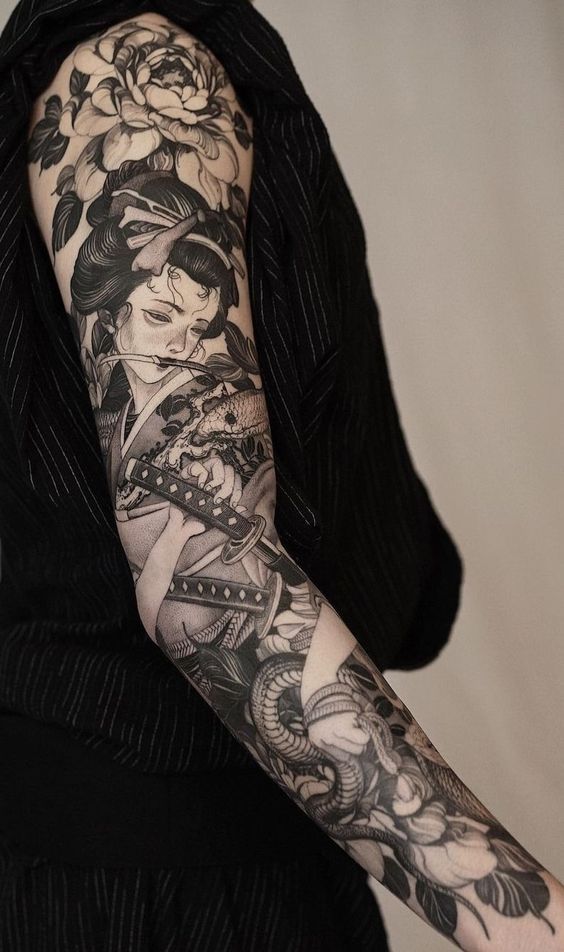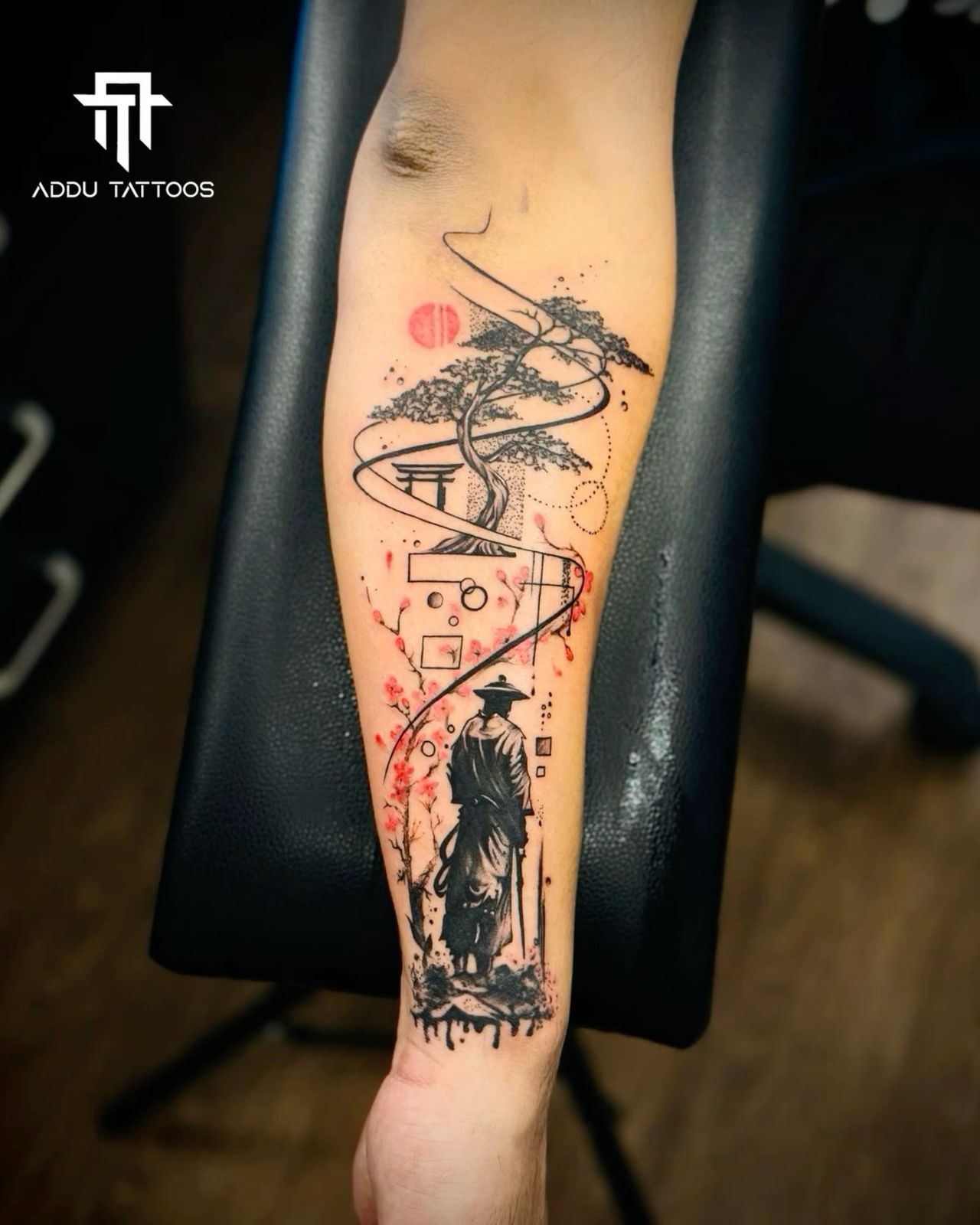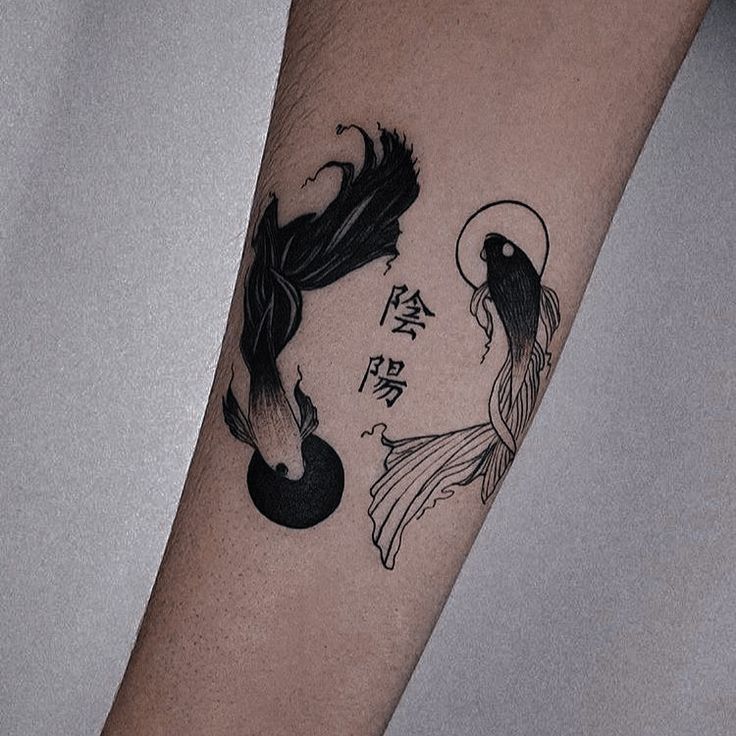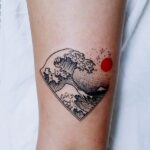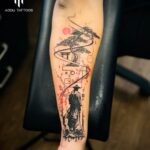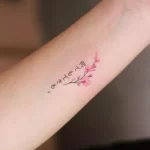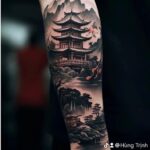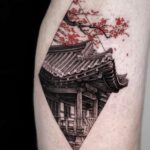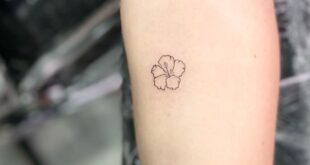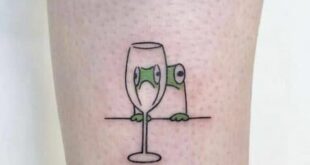Tattooing has a long and complex history in Japan, with deep cultural significance that has evolved over centuries. In Japan, tattoos have traditionally been associated with criminality and the yakuza, the Japanese mafia. In fact, for many years, the display of tattoos in public places such as bathhouses, gyms, and pools was banned due to this criminal association.
Despite this stigma, the art of tattooing, known as irezumi, has a rich and vibrant tradition in Japan. Irezumi is a traditional Japanese tattooing technique that dates back to the Edo period (1603-1868). In irezumi, the tattoo artist uses a special hand tool to manually tattoo intricate designs onto the skin. Traditional irezumi designs often depict mythological creatures such as dragons and phoenixes, as well as natural elements like cherry blossoms and waves.
In recent years, there has been a resurgence of interest in irezumi and traditional Japanese tattooing techniques. Many contemporary tattoo artists in Japan are reviving and reinterpreting traditional irezumi designs, blending them with modern motifs and styles. These artists are pushing the boundaries of traditional irezumi, incorporating new techniques and technologies to create innovative and stunning works of art.
Despite this resurgence, there are still many challenges facing the tattoo community in Japan. The stigma surrounding tattoos persists, and there are still restrictions on where people with tattoos can show their ink in public. This has led to a thriving underground tattoo scene in Japan, where tattoo artists and enthusiasts gather in private studios and secret locations to share their passion for the art form.
In recent years, there have been some signs of progress towards greater acceptance of tattoos in Japan. In 2015, Osaka lifted its ban on tattoos in public places, and some bathhouses and gyms have also relaxed their policies on tattoos. However, there is still a long way to go before tattoos are fully embraced and accepted in Japanese society.
Despite these challenges, the art of tattooing continues to thrive in Japan, with a new generation of artists pushing the boundaries of tradition and creating stunning works of art. Whether traditional irezumi or modern tattoo styles, the Japanese tattoo scene is a vibrant and dynamic community that is sure to continue to evolve and grow in the years to come.
 innstyled Tattoo Ideas
innstyled Tattoo Ideas
